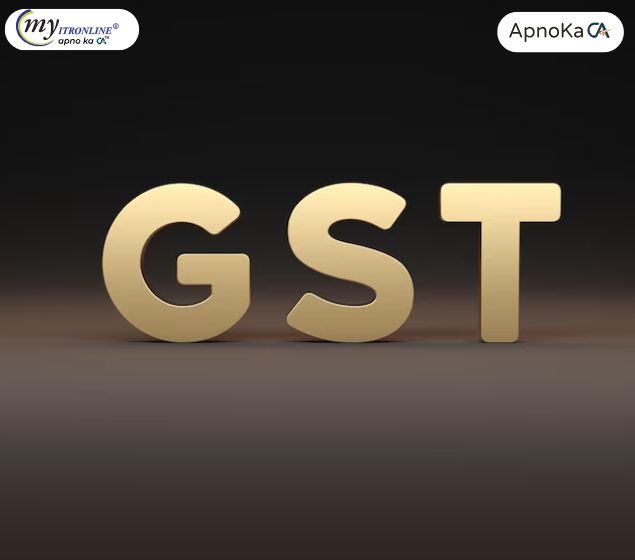# ein
12 posts in `ein` tag

Official Clarification: UPI Transactions Above 2,000 Remain GST-Free
The Indian government affirms there is no GST on UPI transactions exceeding 2,000. This post clarifies that the confusion arose from NPCI's March 2023 introduction of interchange fees (up to 1.1%) specifically for merchant payments over ₹2,000 made via PPI wallets; this fee is not GST and isn't paid by customers. Standard bank-to-bank UPI remains free due to the MDR waiver. The government actively supports UPI growth through incentive schemes.

What's New in GST Registration? Breakdown of the April 2025 CBIC Circular
This blog post details the updated GST registration guidelines issued by the CBIC on April 17, 2025. It explains the challenges faced by businesses, outlines the typical solutions introduced (like risk-based approaches, standardized procedures, and clearer rules for verification), discusses the anticipated benefits such as faster processing and reduced compliance burden, and advises businesses on navigating the new regulations effectively. The goal is to clarify how these changes aim to simplify the process and reduce harassment, thereby improving the ease of doing business in India.

Shares, MF & Property Capital Gains: Reporting Guide for ITR AY 2025-26 (New Rules)
This blog post details how to report capital gains from shares, mutual funds, and property in the Income Tax Return (ITR) for Assessment Year 2025-26 (Financial Year 2024-25). It explains the classification of gains (STCG/LTCG), calculation methods considering grandfathering, the significant impact of the Finance (No.2) Act 2024 changes effective July 23, 2024 (including curtailed indexation and revised tax rates), set-off rules, and specific ITR schedules (like CG and 112A). It also covers capital gains exemptions and emphasizes reconciliation with AIS/TIS.

Comprehending Income Tax Notifications for Employed Persons in India (Financial Year 2024-25): An All-Inclusive Guide
A detailed guide detailing the reasons salaried individuals get income tax notices in India (FY 2024-25), the different kinds of notices, strategies for responding step-by-step, and measures to take in order to prevent receiving notices.

Important Update: IRN Generation to Become Case-Insensitive from June 1, 2025
The GSTN requires that starting June 1, 2025, IRN generation for invoices be case-insensitive, which will involve converting all invoice numbers to uppercase to avoid duplication. Companies need to adjust their systems accordingly to ensure easier compliance with this new requirement.
.jpg)
New E-Invoice Rules: 30-Day Reporting Obligation for 10 Crore AATO - Important Details for Companies
This document details India's upcoming e-invoice reporting requirement that will take effect in April 2025 for companies with a turnover exceeding ₹10 crore over a 30-day period. It outlines the compliance obligations, necessary system modifications, and potential penalties for failing to comply.
.jpg)
GST Compliance Checklist: 9 Key Tasks to Finish Before March 31, 2025
This blog lists the nine essential GST compliances that companies need to finish by March 31, 2025, in order to stay out of trouble and maintain seamless operations. Learn how to stay in compliance and keep correct financial records, from LUT reporting and GSTR-9 filing to e-invoicing and ITC reversal.
.jpg)
Budget 2025–26: Significant Changes in Customs, Excise & Service Tax
The Union Budget 2025–26 brings key reforms in customs, excise, and service tax to promote domestic manufacturing, streamline tax compliance, and support economic growth. Changes include higher import duties on luxury goods, reduced raw material duties, and dispute resolution for service tax cases. These updates create opportunities for MSMEs, manufacturers, and digital businesses, while import-heavy sectors face challenges. Read on to understand the impact of these tax changes on businesses.
.jpg)
GST Notifications & Key Changes: What You Need to Know (28th Jan - 3rd Feb 2025)
This blog offers a thorough examination of the most recent GST announcements and modifications from January 28 to February 3, 2025. The hard locking of the automatically generated tax obligation in GSTR-3B, improved automation in submitting GST returns, clarifications of ITC eligibility, extensions of the GST return deadline for some industries, and improvements to the GSTN site are some of the major developments. The goals of these improvements are to increase taxpayer satisfaction, decrease mistakes, and improve compliance.
.jpg)
Union Budget 2025: New GST Rules, ITC Changes & MSME Benefits
Significant GST reforms were implemented in the Union Budget 2025, with an emphasis on increasing transparency, reducing the tax burden on small enterprises, and boosting compliance. Stricter ITC claim regulations, e-invoicing requirements for companies with ₹5 crore in revenue, updated GST rates, and higher GST registration limits for MSMEs are some of the major changes. Although companies must adjust to more stringent laws, these changes seek to simplify compliance, increase economic growth, and streamline procedures.
.jpg)
Big News for EPFO Members: 7 Lakh Life Insurance Under EDLI Scheme
By raising the life insurance coverage to 7 lakh, the Employees' Provident Fund Organization (EPFO) has expanded its EDLI benefits and given more than six crore members more financial security. The elements of the program, the requirements for qualifying, and the procedure for claiming benefits are all explained in the article. Employers are essential in helping workers or their families get these benefits, highlighting the government's emphasis on increased worker social security.
.jpg)
GST Updates: Key Changes and Announcements for the Week of 14th–20th January 2025
Significant changes were made to the GST this week (January 14–20, 2025) for both taxpayers and companies. Highlights include clarifications on e-invoicing thresholds, rate modifications for EV batteries and BPO services, GST Council meeting outcomes, and extensions for GSTR-3B reporting deadlines. To assist stakeholders in successfully navigating these changes, the blog discusses notices, compliance tactics, industry responses, and impending deadlines.
